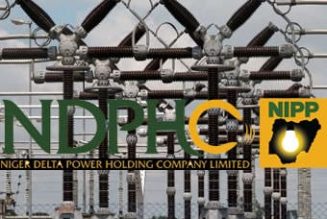Economy
Treasury mulls mini-budget to clear Sh641bn pending bills
Friday June 02 2023
The National Treasury building in Nairobi in this picture taken on March 15, 2023. PHOTO | DENNIS ONSONGO | NMG
The Treasury will table a Cabinet memorandum next week spelling out its plans to clear the Sh641 billion bills that the government owes contractors and suppliers.
Treasury Principal Secretary Chris Kiptoo told the National Assembly’s Budget and Appropriations Committee (BAC) that State corporations owe suppliers and contractors Sh407 billion, county governments (Sh160 billion) and ministries, departments and agencies (Sh18.3 billion).
He said the Cabinet is expected to approve the formation of a multi-agency team to review the huge pending bills and establish a budget for clearance of the debts by September this year.
Read: Treasury back to market with a Sh20 billion bond
The multi-agency team will comprise officials from the Treasury, the Auditor General, Ministry of Roads, Public Works and Housing, the Public Procurement Regulatory Authority (PPRA) and the Ethics and Anti-Corruption Commission (EACC).
The pending bills team will also draw membership from the Law Society of Kenya (LSK), the Institution of Engineers of Kenya (IEK) and the Institute of Certified Public Accountants of Kenya (ICPAK).
“The Cabinet memorandum will be submitted to the Cabinet next week. By September, we need to have done a review on all pending bills and provide a budget that clears all outstanding payments to suppliers and contractors,” Dr Kiptoo said.
He appeared before the BAC chaired by Kiharu MP Ndindi Nyoro to respond to questions that arose during the scrutiny of the 2023/24 budget estimates.
Mr Nyoro said several ministries and counties and State corporations have huge pending bills.
“Pending bills are increasing when the Constitution and the Public Finance Management Act require that pending bills shall form the first charge on the budget of the concerned government agency in the subsequent financial year,” Mr Nyoro said.
Dr Kiptoo said the Treasury will formulate a supplementary budget to clear all pending bills that will be determined to be payable.
“After we clear all the outstanding bills, pending bills that will arise in the financial year 2023/24 will form the first charge after next June. We will be very strict as the National Treasury to those entities that do not clear pending bills in the financial year that they arise,” Dr Kiptoo said.
President William Ruto last month accused his predecessor’s administration of hiding more than Sh200 billion in pending bills from the current budget.
“When we came to office we found they had not factored about Sh130 billion of pending bills and almost Sh90 billion that was meant to be given to the counties,” Dr Ruto said.
At least 160 State corporations had accumulated Sh408 billion pending bills out of which Sh166.99 billion were unpaid contractor dues, Sh115.7 billion owed to suppliers as at December last year.
Parliament in February opened investigations into allegations of diversion of payments meant for suppliers blamed for the growing pending bills that stood at Sh646.8 billion as of December last year.
Margaret Nyakang’o, the Controller of Budget (CoB), told the County Public Investments and Special Funds Committee (CPISF) that the diversion of payments from rightful payees to other suppliers not in the payment schedules had made the pending bills headache worse.
“Some of the key reasons for the huge pending bills is the diversion of payments from the rightful payees to others who are not in the list that I authorise for payments,” Dr Nyakang’o told the committee.
She told the committee that individuals paying suppliers at both levels of government and at the parastatals have in some instances removed transactions they felt are not serving their interests and left them as pending bills.
She blamed the lack of automation for her office to have a “full view” of the transactions once the CoB approves withdrawals from the exchequer.
Read: Treasury’s three-year bond raises Sh20.3bn
The CoB does not have real-time access to the accounts, a loophole that counties exploit in making discriminatory payments to contractors besides lodging fictitious claims.









